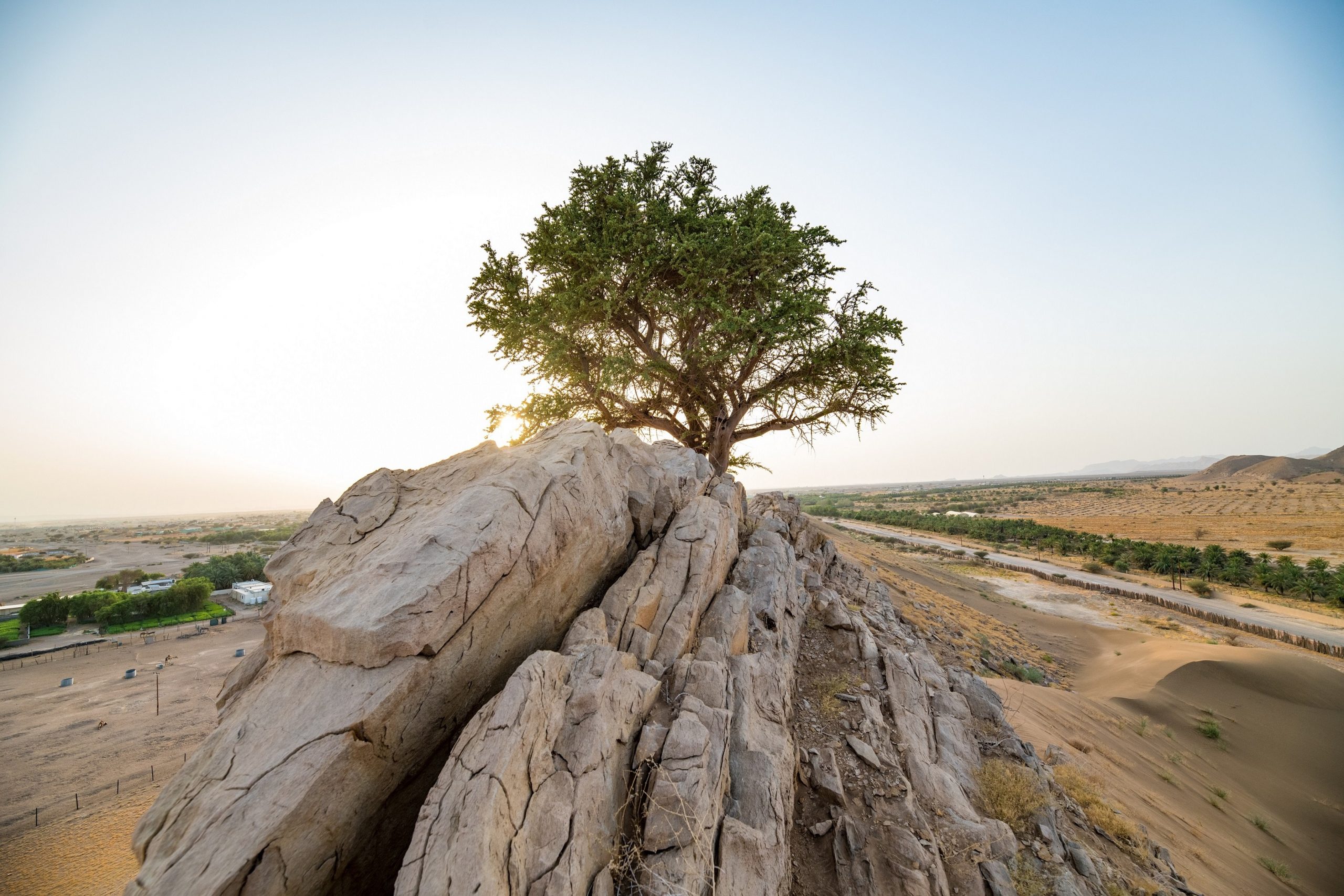A 100-year-old species of Al-Maroud tree that was once known to be endemic in Ras Al Khaimah was found within the rock formations in Malakat, east of Al Ain and close to the UAE’s border with Oman.
Studies by the Environment Agency – Abu Dhabi (EAD) have identified the species of the tree as the locally known as Al-Sarh, a member of the caper family, with the scientific name Maerua crassifolia, reported WAM.
Its species grows widely across Africa, although numbers are declining in Egypt, where it was once considered sacred by the ancient Egyptians. It is also found in the Arabian Peninsula, particularly in Yemen, and in Jordan and Palestine. The UAE and Oman are at the extreme eastern end of its range.
Fieldworkers from EAD found the tree growing in the rocky formation. They said the centenary tree may have lived for a hundred years due to difficult access to the area.
Inhabitants of Malakat said that they remembered using its delicate branches as an instrument to put on eyeliner.
According to The Comprehensive Guide to the Wild Flowers of the United Arab Emirates, a book published by EAD’s predecessor, the Environmental Research and Wildlife Development Agency, ERWDA, in 2003, other traditional uses included boiling of its leaves to produce a drink to treat colic and powdering its leaves to make a poultice to ease pain arising from bone fractures.
Announcing the discovery, Dr Shaikha Salem Al Dhaheri, Secretary General of EAD, said, “EAD is preparing an in-depth study on the current state of the tree and devising a conservation plan for this species. We will also work with scientific research centres in local universities to attempt to multiply the number of trees through the use of its existing tissue.”
If propagation is successful, EAD will seek to plant further trees in selected areas, she said.
Growing up to nine metres high, the Al-Sarh is an evergreen tree with small oval leaves, a leathery texture and dense branches.
The branches give the tree a spherical green crown that provides a perfect shade footprint when its growth is complete. Its single flowers grow in January and February and turn into small, prickly fruits that ripen in March and April.




